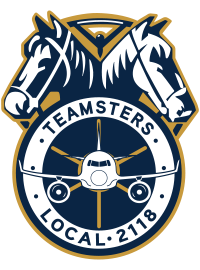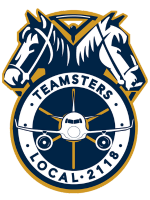Trustee Update – May 22, 2025
Allegiant Pilots,
Hearing for TRO on GOM changes
On Tuesday and Wednesday, we appeared in federal court for a hearing, with Allegiant seeking a temporary restraining order to prevent us from striking. They argued that its GOM changes did not constitute a major dispute and were therefore subject to the minor dispute process under the RLA.
There were no opening statements allowed by Judge Gordon, and as the moving party, Allegiant put on its initial witness, Bill Fishburn. Mr. Fishburn was asked questions over the course of several hours concerning Allegiant’s Business model, how sensitive the company would be to a strike, etc. Among many other things, Mr. Fishburn claimed: Allegiant was an essential air service carrier; how immovable the negotiators are over one section; and provided commentary on how the union was just attempting to gain leverage at the bargaining table. Some time into questioning Fishburn, Judge Gordon made it clear that he was not concerned with the status of our negotiations, how each party felt about the other, or any of the Allegiant’s grievances.
Allegiant argued two main points during the hearing: 1) the new policy was “accepted” by the FAA POI and 2) the Management rights clause in Section 1 gives the company, in their attorney’s words, “without limitation, all of the inherent rights, powers and authority to manage the business and direct its workforce” and that since the FAA POI had accepted the policies, the last sentence in Section 1. J. 1. (prohibiting the company from instituting policies that were violating FAA regulations) did not apply.
Leaning heavily on Mesa V AFA, 9th Circuit 2009, and the POI’s decision, Judge Gordon issued an oral bench ruling and stated he would issue a written ruling shortly. In his ruling, the judge granted the company’s motion for an injunction, based on his finding that it was a minor dispute, and ordered the company to provide a bond payment pending final disposition of the dispute. The next step is to file for expedited dispute resolution under Section 1. I. As we have already communicated, the FAA interpretations and the provisions in your CBA are clear. A pilot’s life is divided into Duty and Rest, with rest also encompassing all days off. Neither the FAA nor your CBA segregates rest into different categories. We continue to disagree with the POI’s interpretation of the company’s Temporary Bulletin and are seeking FAA clarification.
Lastly, I have heard that several pilots are confused about Judge Gordon’s comment about “burner phones.” The judge’s comment was based on the fact that, according to company management, pilots are not required to be contactable during their rest period. A pilot is only required to return contact with Flight Operations management if the pilot “happens to notice that management tried to reach them.” The judge stated that pilots could get a “burner phone” and only have it on during work hours, thus preserving their days off and rest. I will be hosting a webinar on Saturday to answer questions about the process to this point and the next steps.
Zoom Webinar to discuss the Injunction
Saturday, May 24th, 3 PM Pacific Time
Fraternally,
Greg Unterseher
Trustee, APA Teamsters Local 2118


